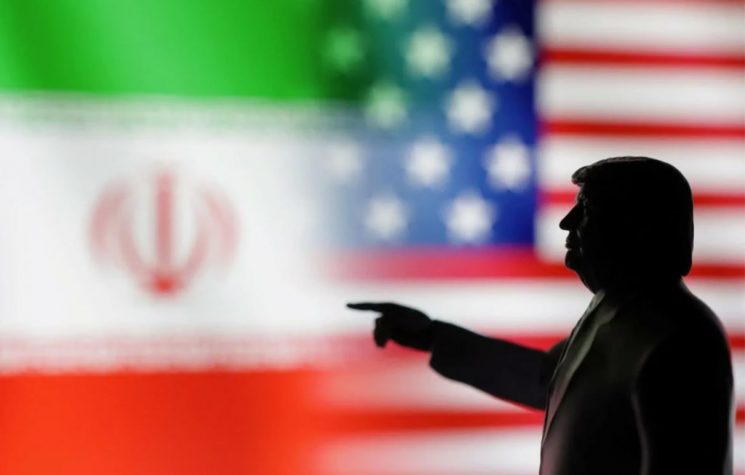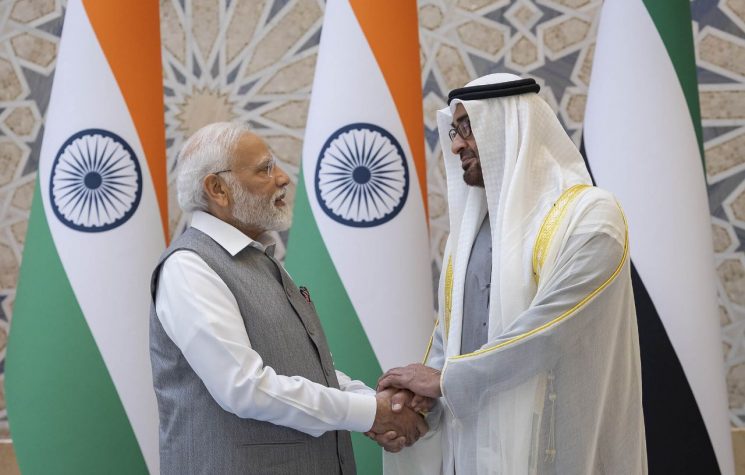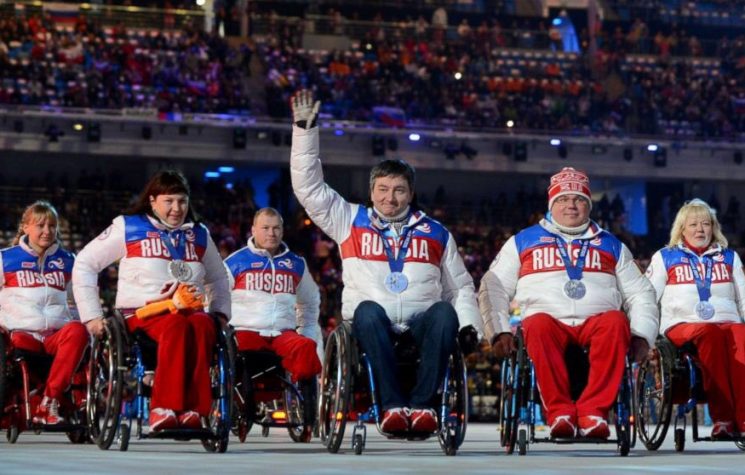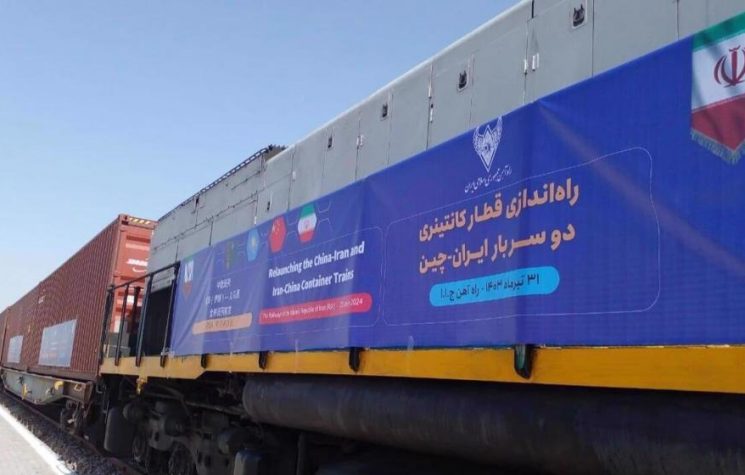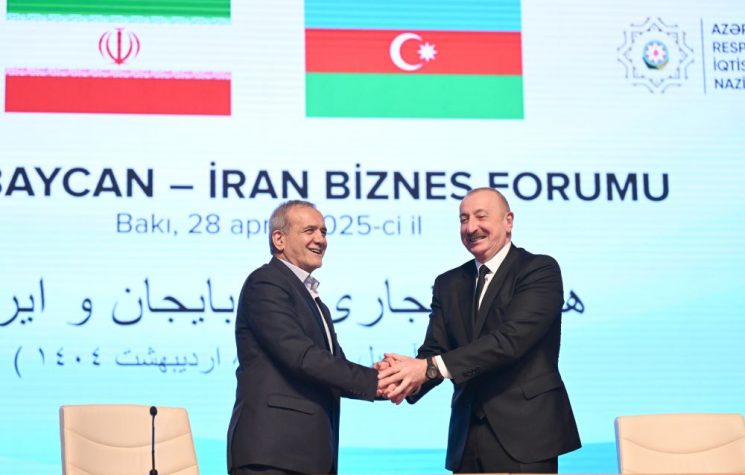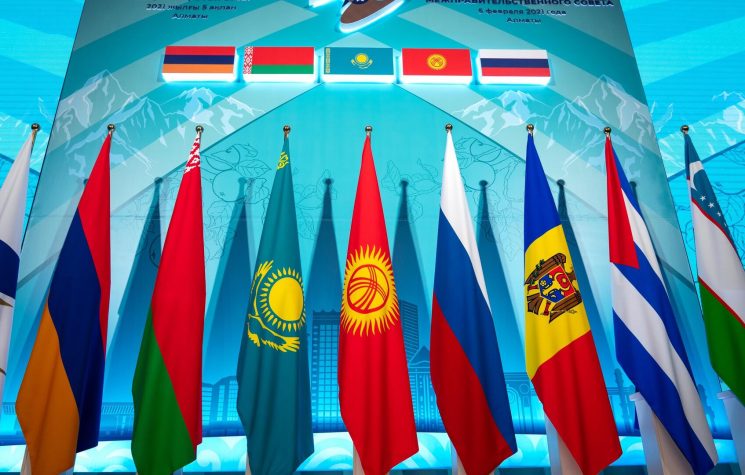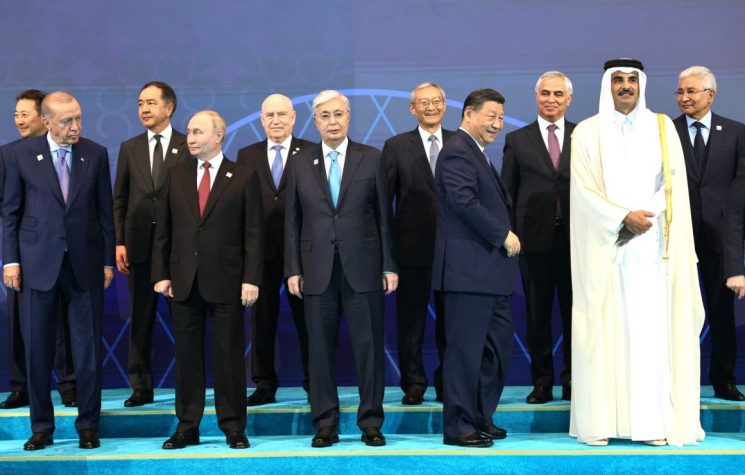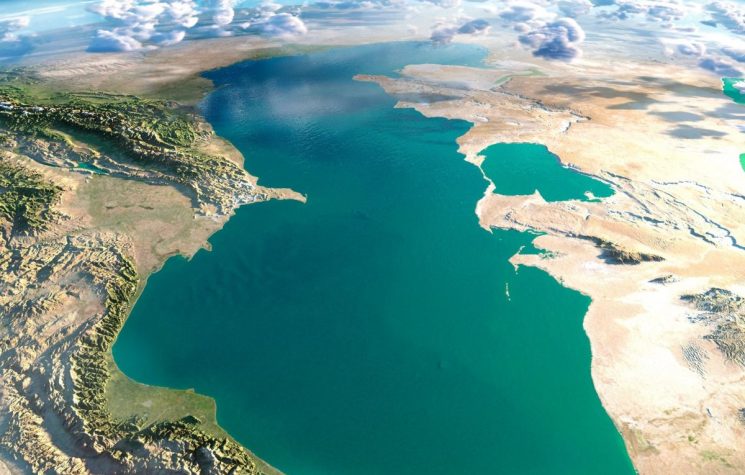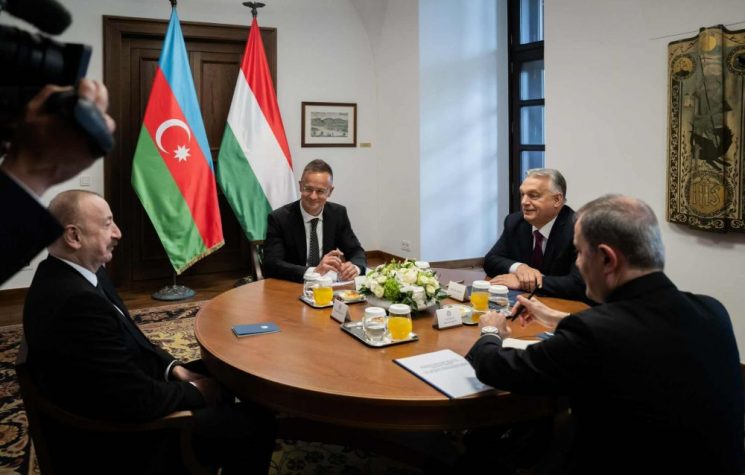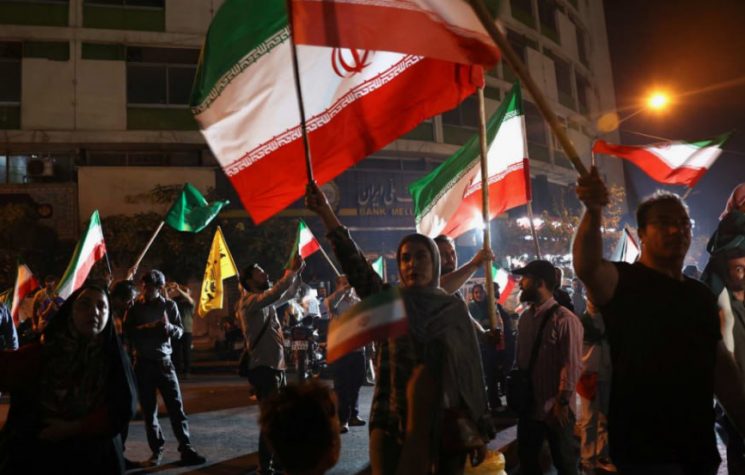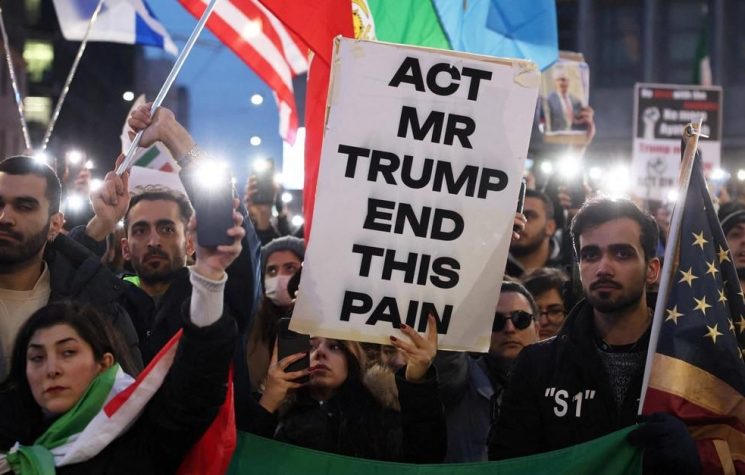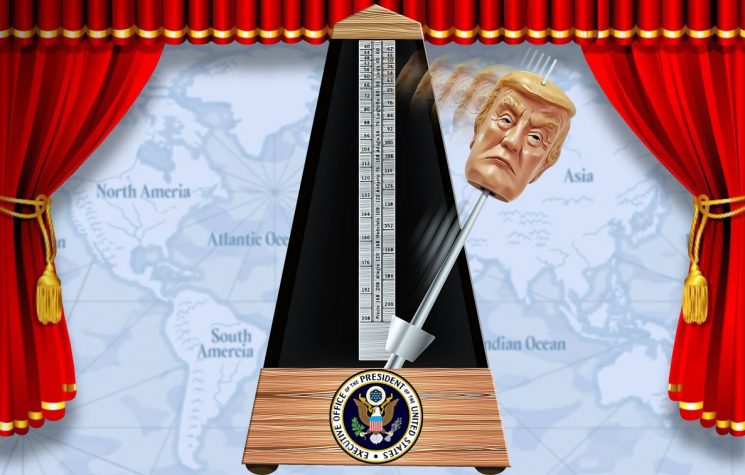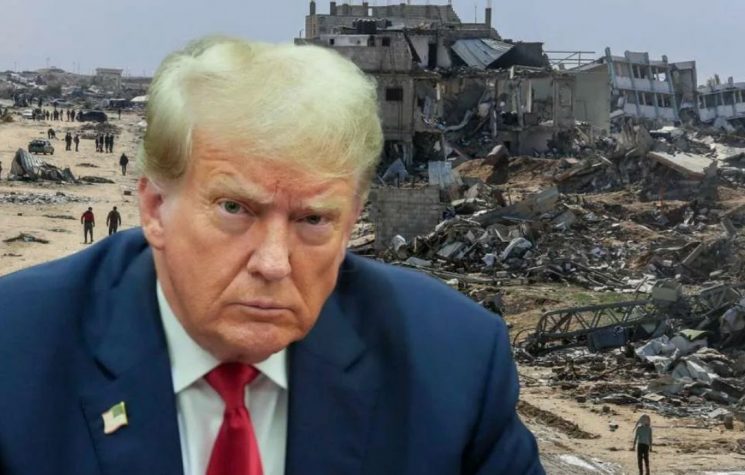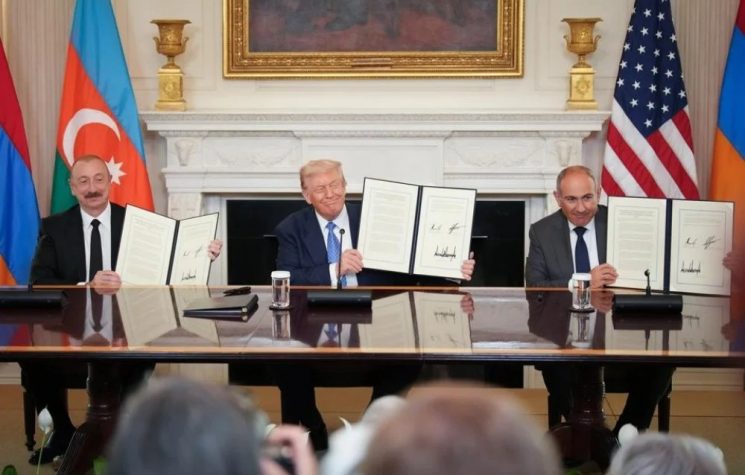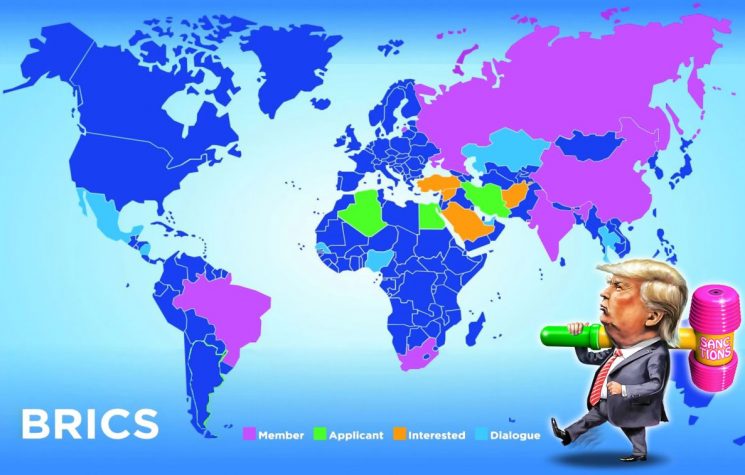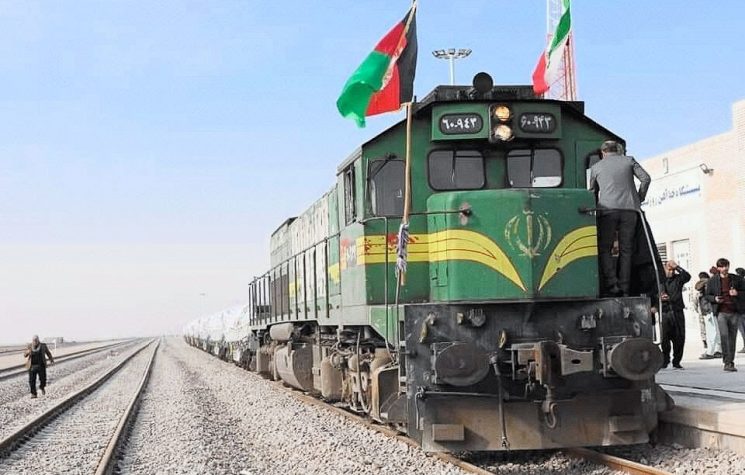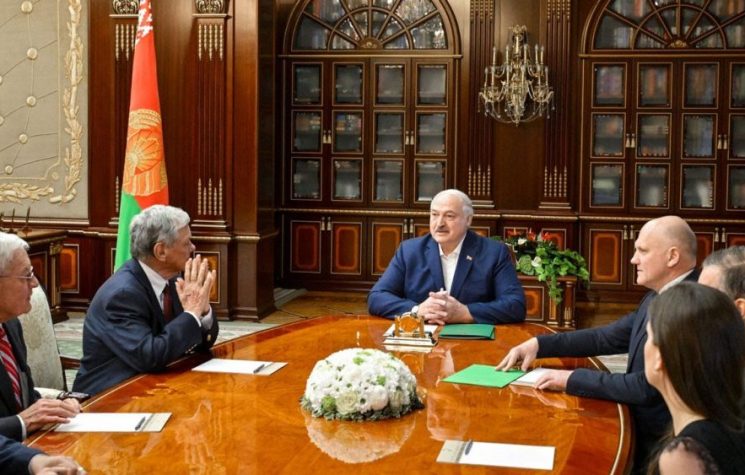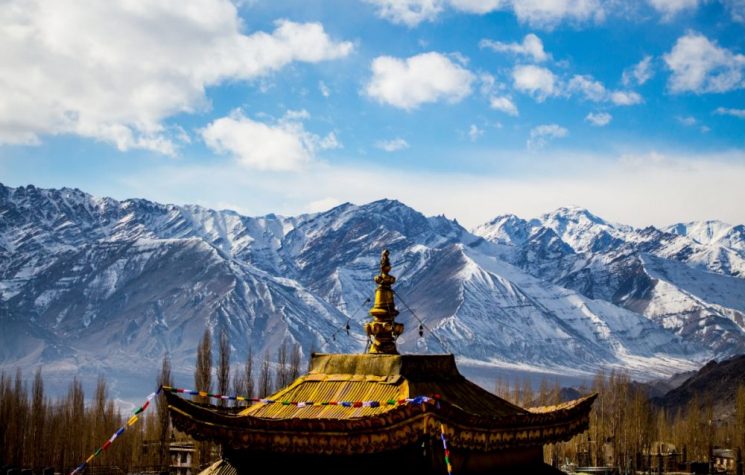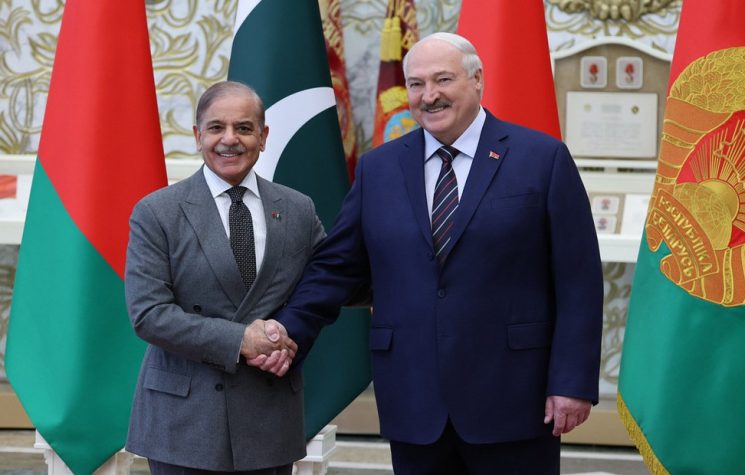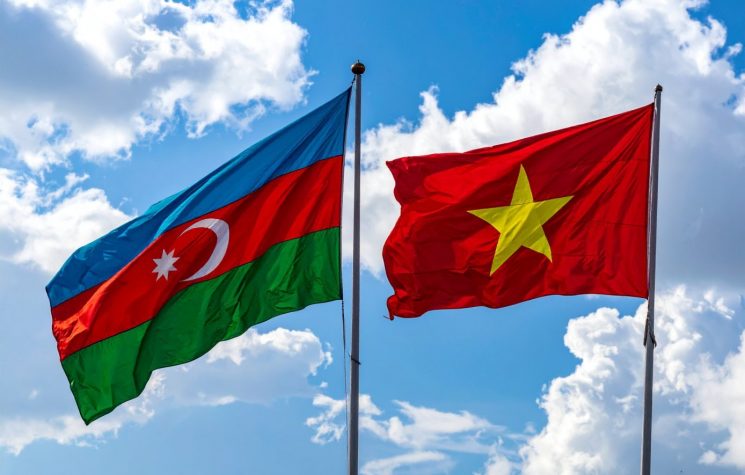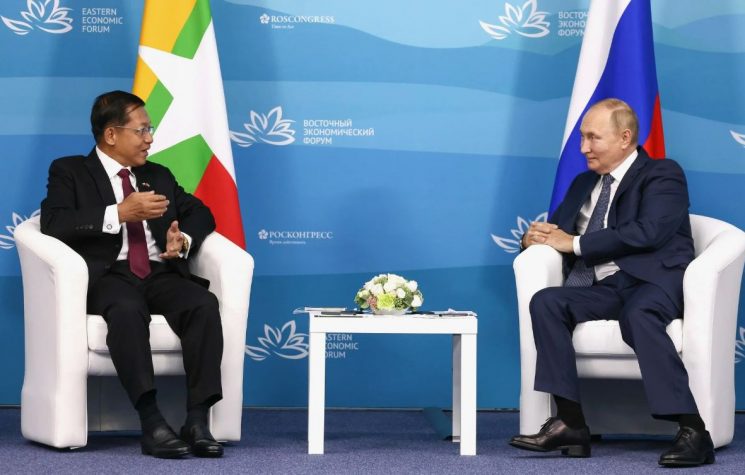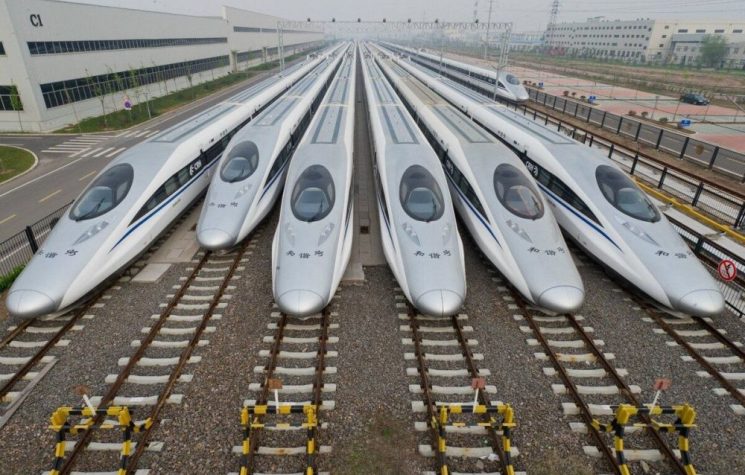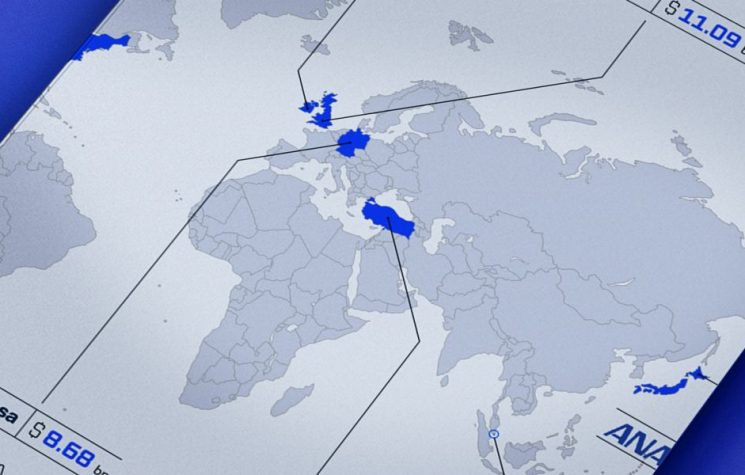Since 2022, Ilham Aliyev’s Azerbaijan has changed direction and has now become Russia and Iran’s new strategic ally. With the authoritative support of Minsk behind the scenes.
Contact us: info@strategic-culture.su
Who would have thought it. Since 2022, Ilham Aliyev’s Azerbaijan has changed direction and has now become Russia and Iran’s new strategic ally. With the authoritative support of Minsk behind the scenes. And the best is yet to come, because there are still many surprises.
The decisive meeting, in perfect Caucasian style
The meeting between Putin and Aliyev on 18 August passed very much under the radar, but in truth it was a very high-level meeting in which, after years of painstaking work, the last stone was laid for the structural strengthening of the North-South route between Russia and Iran.
It emerged from the statements of the two presidents that:
– Russia promotes the multifaceted and friendly development of Azerbaijan and mutual relations;
– Russian and Azerbaijani cultures are in continuous contact and exchange, with a strengthening of popular diplomacy, study projects and historical reinvigoration;
– Cooperation between the two countries will lead to new formal agreements, with the signing of various documents, in the economic and… strategic spheres!
This last point is of major importance, because it indicates the shared desire to weave a defence shield in the North-South corridor and is part of that strategy of consolidating Rimland that is fundamental for the entire Eurasian bloc and, more broadly, for a multipolar world.
Just imagine the geography of what is happening: Russia and Iran cut the Caucasus in half, creating a barrier between the Black Sea and the Caspian Sea that forces the Western front to retreat further and further.
This is likely to cause (these are some possible projections) a series of chain reactions, both in the short and long term:
– Georgia will be placed under tremendous political and commercial pressure. It’s already the subject of constant destabilization and attempts at colored revolutions by American and British foreign agents, and has been in the grip of severe institutional instability for a long time now. It is, however, a strategically indispensable country to ensure the solidity of the Eurasian bloc and the control of the Caucasian seas; it’s also the country with the largest number of blockchain cryptocurrencies and complementary currencies and has a large number of servers and operating bases related to cybersecurity and cyber-intelligence. What’s more, there is the historical issue: Georgians are a Eurasian people in their own right and, consequently, redemption from a macro-regional and multipolar perspective is a goal that is unlikely to be left on the back burner. Georgia could then find itself under such pressure that it can no longer tolerate American interference; on the other hand, the U.S. could try everything to provoke a coup or civil war and destabilize the country to the point of calling for military intervention under the pretext of the ‘Russian danger’. In any case, Georgia’s prospects are getting narrower and narrower, and the rulers, together with the people, will have to make important choices soon.
– Turkey, the strategic key to the Mediterranean, will be faced with an even stronger and more assertive eastern bloc. This will imply the urgency of a new diplomacy with Azerbaijan and the resolution of existing disputes, especially concerning the Kurds and Armenians. This move could force Turkey into the very delicate phase it is currently going through of gradual emancipation from NATO influence, in favor of greater cooperation with the Eastern Powers and in particular the BRICS+ and SCO. Of course, Turkey would be at a commercial disadvantage, so it will have to rush to diplomatic solutions.
– Armenia, in this sense, could become an even more problematic breaking point. Western interference is strong enough that no real diplomatic solution can be found. It is also true that a large part of Armenia’s ‘integrity’ lies in the balance between Georgia and Turkey, both of which are under the American orbit. If Georgian stability breaks down, what would happen in Armenia? Nor should we underestimate the question of the Armenian Christians, a very delicate dispute that, from an international point of view, binds the choices of all the countries involved in no small measure and is the reason for possible new interventions by international bodies.
– Access to the Black Sea. It is true that Azerbaijan does not have access to the Black Sea, but rather to the Caspian Sea, but it is equally true that guaranteeing itself greater strategic pressure on the south-eastern front of the Black Sea would mean a point of advantage for Russia, and collaterally also Iran, as far as the maritime supremacy of the region is concerned. This’s no small advantage, because it is not only maritime space but also airspace and access to primary resources.
President Aliyeh, for his part, reiterated that the friendly nature of Russian-Azerbaijani relations passes through a common commitment to stability in the South Caucasus from a military point of view, and increased trade in gas and raw materials.
The not insignificant precedent with Belarus
As is already known, the Western bloc recently provoked and threatened Belarus once again. Following the incident, President Lukashenko appealed to Vladimir Putin to reiterate the common strategy of intervention in the event of an extension of the Ukrainian conflict.
It’s hardly coincidental that Putin’s visit to Azerbaijan came after talks with Lukashenko.
In May this year, Lukashenko paid an official state visit to Baku to reshape bilateral agreements with Azerbaijan, wanting to strengthen and expand cooperation between the two countries. Many other visits had already taken place: in 2007, 2010, 2013, 2015, 2016 and 2021.
It should be noted that both Lukashenko and Aliyeh are strong and self-sufficient figures, both of whom have charisma and great trust from the population, which guarantees stability in the political, financial and economic system, as well as a certain propulsion in development.
Minsk has always supported the territorial integrity of Azerbaijan and has repeatedly proposed various initiatives for resolving the Karabakh conflict, without unfortunately ever being followed up by the Armenian government. When after the regional escalation, Armenian President Pashinyan repeatedly tried to corner Baku with the CSTO, it was Lukashenko who put Armenia in its place.
To understand it better: in terms of trade, Minsk and Baku have signed more than 120 treaties and agreements in various sectors, Azerbaijani companies participate in the Belarusian Universal Commodity Exchange (BUTB) and have organized various trade forums. In the past year alone, net trade turnover has mathematically doubled. Azerbaijan is one of the main suppliers of fruit and vegetables to the Belarusian market, a favor that is returned by Belarus, which is the main exporter of agro-industry, with a very high technological potential. Belarus has also invested significantly in Azerbaijan in the development of telecommunications and transport, as well as in the defense sector, where it has opened airports and several ballistic installations. A sector, the latter, in which Lukashenko has repeatedly stressed the need for Azerbaijani leadership in the South Caucasus.
Against the backdrop of Western sanctions, attempts to block Belarus in trade, economy and technology, the importance of the partnership between Minsk and Baku remains a sign of breaking with pressure from enemy entities. With foresight and pragmatism, the two countries have set strategic goals that they pursue intransigently for the national interest.
Now, resuming: the cooperation between Russia and Belarus in guaranteeing the stability of the Caucasus easily relates not only to their respective commercial interests, but also to the need to strengthen the Caucasian Rimland and keep the Eurasian bloc strong. A stability for which everyone benefits, not just Russia and Iran.
A perfect assist that arrives at the right time, just before opening the month of September, which is already expected to be very hot: the Eastern Economic Forum in Vladivostok could mark the final agreement for the entry of many new countries into the BRICS+, prelude to a BRICS + SCO agreement, which would mean only one thing for the West…

















